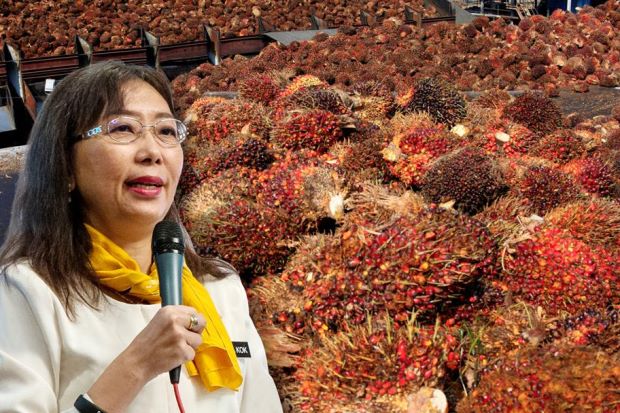Oil palm smallholders need help now
EDWARD Chai owns about 2.5ha of oil palm and earned RM839.55 at the end of last month.
While sales added up to RM966.15 for his 3.39 tonnes of fruits at RM285 a tonne according to a copy of a sales receipt he shows us, Chai says he had to deduct RM135.60 for engaging a worker to harvest the crop, paying RM40 per tonne. He transported the fruit bunches to the factory himself to save on the RM118.65 transport charge at RM35 per tonne.
On Thursday, the price of oil palm dropped to RM280 per tonne, which means Chai’s income would be RM813.60 compared with the RM839.55 he made last month. Harvesting is usually done three times every two months.
Smallholders are also finding it increasingly hard to engage foreign workers these days following the government’s decisions on the hiring of foreign labour, he says, adding that this has resulted in many smallholders watching ripe fruit bunches rot on the trees.
“We are really in very bad shape,” he says, adding that with no solution to their problems in sight, smallholders have been having sleepless nights in recent months.
The price of oil palm fruit bunches slid by more than 60% from a high of about RM750 per tonne previously.
“We are crying every day,” says Chai when asked what the mood is like in Kampung Baru Bidor Stesen in Bidor, Perak, where he lives.
The scenario is the same in nearby Kampung Baru Kuala Bikam.
A villager who identifies himself only as Ah Chen, 22, says that one week last month factories stopped accepting oil palm fruit bunches due to a glut.
Chai and Ah Chen are among some 650,000 oil palm smallholders in the country caught in a dilemma by a glut of oil palm and falling prices.
Primary Industries Minister Teresa Kok has said that Malaysians seem to prefer imported oils like canola, sunflower and soy from Europe instead of local palm oil; she claims that the promotion of palm oil overseas will fail if Malaysians themselves do not consume it.
About four months ago, though, Kok expressed fear that there may not be an adequate supply of palm oil, especially from smallholders, following the overwhelming response she received from Chinese investors invited to do business in Malaysia during her private visit to China. She has also announced upcoming campaigns to raise awareness of palm oil and conduct more research into using oil palm trunks as an alternative to plywood.
But all this means little to smallholders who are struggling to stay afloat right now.
“Wo men bu yao ting fei hua (We do not want to hear nonsense),” is Ah Chen’s response to Kok’s statements.
“We need solutions to our problems very urgently,” says Chai, who shares the concern of Datuk Seri Dr Wee Ka Siong who has been urging the Pakatan Harapan government to take action to alleviate the suffering of the smallholders.
The MCA president has been voicing his concern on every platform available in recent months.
“Talking and quoting statistics is not enough,” he has said to Kok as calls for solutions to help the smallholders get louder by the day.
“The government has to increase exports and look at the market in China with its 1.4 billion population,” says Ah Chen, echoing former Primary Industries Minister Tun Dr Lim Keng Yaik’s description of the China market.
“If every Chinese person takes one teaspoon of palm oil, we will prosper like nobody’s business,” said the late Dr Lim who was known for his witty remarks.
Last year, China imported 1.92 million tonnes of palm oil from Malaysia, compared with India and the European Union which bought 2.03 million tonnes and 1.99 million tonnes respectively.
In October, Dr Mahathir said in Parlia-ment that China would be importing another 500,000 tonnes of palm oil from Malaysia, provided prices are competitive. It was his reply to the concerns Dr Wee (Ayer Hitam) expressed about Malaysia-China ties after the deferment and cancellation of mega projects with China-based companies.
The question for Kok now is whether the overwhelming response from Chinese investors to do business in Malaysia that she received during her visit to China shortly after she was made minister – when she met government-linked companies and government agencies – has been translated into actual investments.
She was very confident then, saying palm oil prices will recover significantly in the second half of 2018 because of the response she received.
The year is drawing to a close and the subdued mood among oil palm smallholders speaks volumes of a flagging industry.
With the Chinese set to usher in the Lunar New Year on Feb 5, Dr Wee says he hopes an air of festivity can return.
“Let’s see,” says the Ayer Hitam MP.
Source: TheStar

